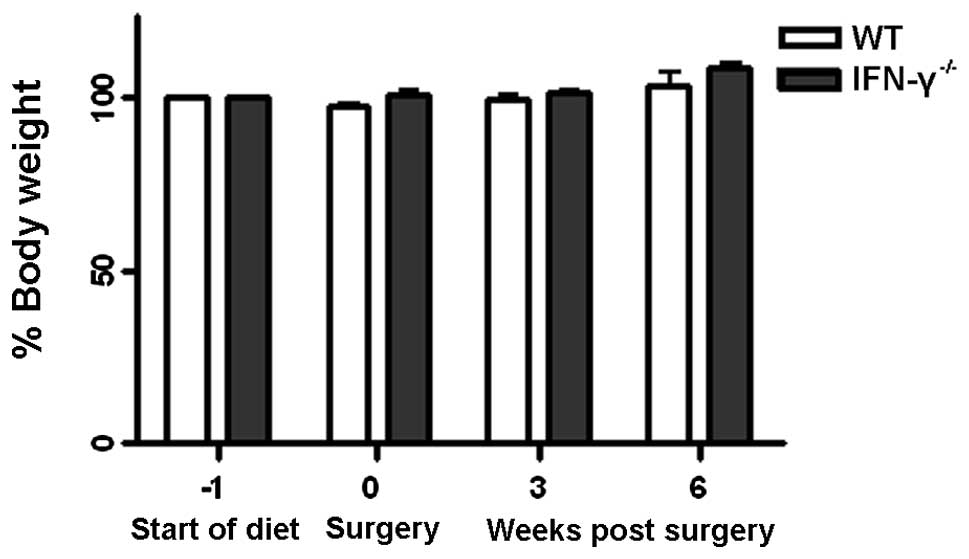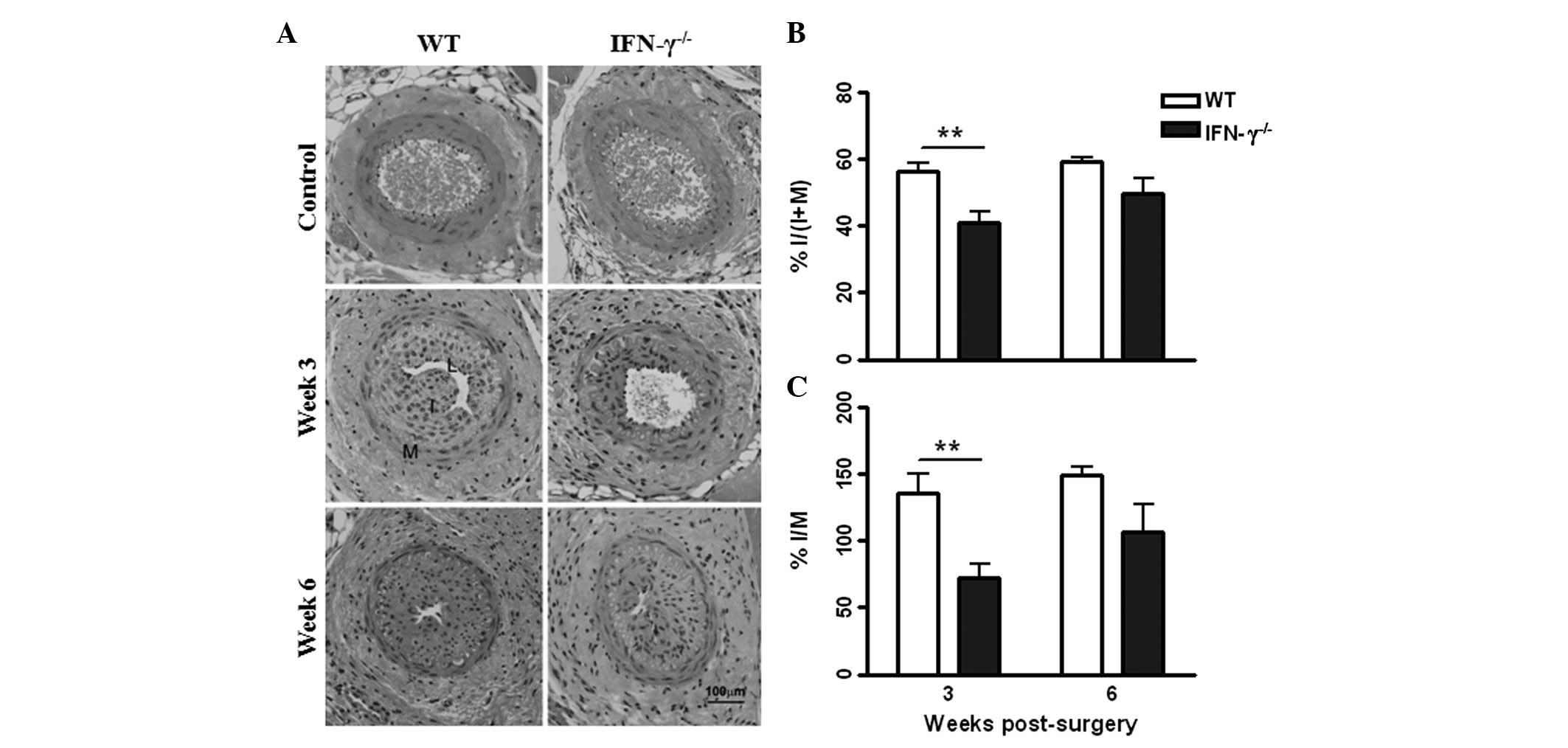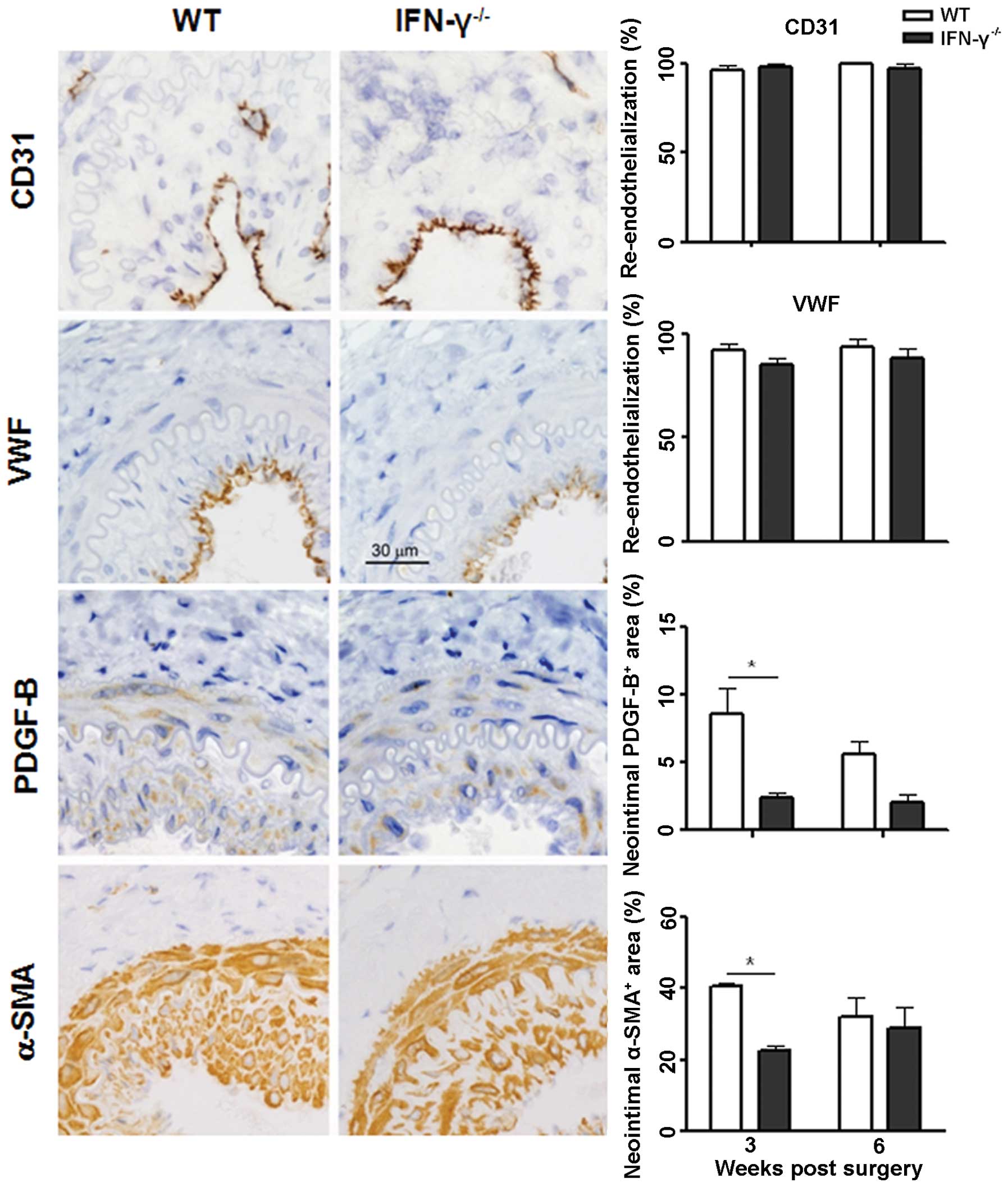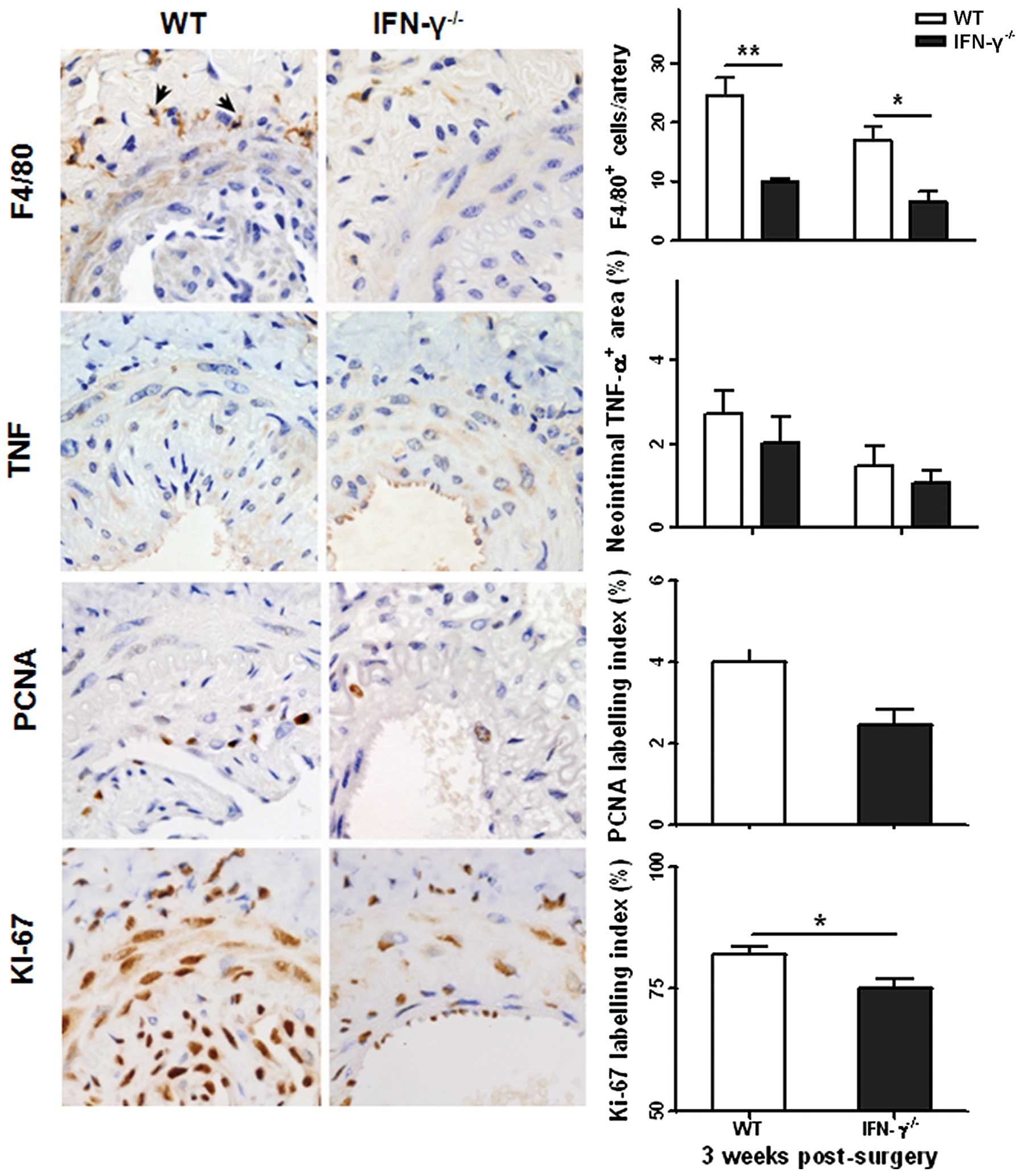|
1.
|
JJ LiSP NieCY ZhangZ GaoX ZhengYL GuoIs
inflammation a contributor for coronary stent restenosis?Med
Hypotheses68945951200710.1016/j.mehy.2006.05.06917045418
|
|
2.
|
MR BennettIn-stent stenosis: pathology and
implications for the development of drug eluting
stentsHeart89218224200310.1136/heart.89.2.21812527687
|
|
3.
|
RS SchwartzDR Holmes JrEJ TopolThe
restenosis paradigm revisited: an alternative proposal for cellular
mechanismsJ Am Coll
Cardiol2012841293199210.1016/0735-1097(92)90389-51401633
|
|
4.
|
EJ HarveyDP RamjiInterferon-gamma and
atherosclerosis: pro- or anti-atherogenic?Cardiovasc
Res671120200510.1016/j.cardiores.2005.04.01915907820
|
|
5.
|
K SchroderPJ HertzogT RavasiDA
HumeInterferon-gamma: an overview of signals, mechanisms and
functionsJ Leukoc Biol75163189200410.1189/jlb.060325214525967
|
|
6.
|
ML LeonSH ZuckermanGamma interferon: a
central mediator in atherosclerosisInflamm
Res54395411200510.1007/s00011-005-1377-216283107
|
|
7.
|
G TellidesDA TerebNC
Kirkiles-SmithInterferon-gamma elicits arteriosclerosis in the
absence of
leukocytesNature403207211200010.1038/3500322110646607
|
|
8.
|
Y NunokawaS TanakaInterferon-gamma
inhibits proliferation of rat vascular smooth muscle cells by
nitric oxide generationBiochem Biophys Res
Commun188409415199210.1016/0006-291X(92)92400-R1384487
|
|
9.
|
GK HanssonL JonassonJ HolmMM ClowesAW
ClowesGamma-interferon regulates vascular smooth muscle
proliferation and Ia antigen expression in vivo and in vitroCirc
Res63712719198810.1161/01.RES.63.4.7123139321
|
|
10.
|
H MuhlJ PfeilschifterAnti-inflammatory
properties of pro-inflammatory interferon-gammaInt
Immunopharmacol312471255200310.1016/S1567-5769(03)00131-012890422
|
|
11.
|
K KusabaH KaiM KogaInhibition of intrinsic
interferon-gamma function prevents neointima formation after
balloon
injuryHypertension49909915200710.1161/01.HYP.0000259668.37901.8c17309951
|
|
12.
|
M ParoliP MarianiD AccapezzatoModulation
of tachykinin and cytokine release in patients with coronary
disease undergoing percutaneous revascularizationClin
Immunol1127884200410.1016/j.clim.2004.03.02115207784
|
|
13.
|
D ZohlnhoferT RichterF
NeumannTranscriptome analysis reveals a role of interferon-gamma in
human neointima formationMol
Cell710591069200110.1016/S1097-2765(01)00239-811389852
|
|
14.
|
GK HanssonJ HolmInterferon-gamma inhibits
arterial stenosis after
injuryCirculation8412661272199110.1161/01.CIR.84.3.12661909221
|
|
15.
|
M BusnelliA FroioML BacciPathogenetic role
of hypercholesterolemia in a novel preclinical model of vascular
injury in
pigsAtherosclerosis207384390200910.1016/j.atherosclerosis.2009.05.02219540496
|
|
16.
|
DK DaltonS Pitts-MeekS KeshavIS FigariA
BradleyTA StewartMultiple defects of immune cell function in mice
with disrupted interferon-gamma
genesScience25917391742199310.1126/science.84563008456300
|
|
17.
|
AK HarrisJ ShenJ RadfordS BaoBD
HamblyGM-CSF deficiency delays neointima formation in a
normolipidemic mouse model of endoluminal endothelial damageImmunol
Cell Biol87122130200910.1038/icb.2008.7318839015
|
|
18.
|
J ShenM WhiteAJ HusbandBD HamblyS
BaoPhytoestrogen derivatives differentially inhibit arterial
neointimal proliferation in a mouse modelEur J
Pharmacol548123128200610.1016/j.ejphar.2006.07.05016950243
|
|
19.
|
S BaoKW BeagleyAM MurrayIntestinal IgA
plasma cells of the B1 lineage are IL-5
dependentImmunology94181188199810.1046/j.1365-2567.1998.00512.x9741339
|
|
20.
|
J MiddletonL AmerichR GayonA comparative
study of endothelial cell markers expressed in chronically inflamed
human tissues: MECA-79, Duffy antigen receptor for chemokines, von
Willebrand factor, CD31, CD34, CD105 and CD146J
Pathol206260268200510.1002/path.178815887283
|
|
21.
|
VJ PompiliD GordonH SanExpression and
function of a recombinant PDGF B gene in porcine
arteriesArterioscler Thromb Vasc
Biol1522542264199510.1161/01.ATV.15.12.22547489251
|
|
22.
|
H MurayamaM TakahashiM TakamotoDeficiency
of tumour necrosis factor-alpha and interferon-gamma in bone marrow
cells synergistically inhibits neointimal formation following
vascular injuryCardiovasc Res80175180200810.1093/cvr/cvn250
|
|
23.
|
M AoyagiM YamamotoH WakimotoH AzumaK
HirakawaK YamamotoImmunohistochemical detection of Ki-67 in
replicative smooth muscle cells of rabbit carotid arteries after
balloon denudationStroke2623282332199510.1161/01.STR.26.12.2328
|
|
24.
|
P KurkiK OgataEM TanMonoclonal antibodies
to proliferating cell nuclear antigen (PCNA)/cyclin as probes for
proliferating cells by immunofluorescence microscopy and flow
cytometryJ Immunol
Methods1094959198810.1016/0022-1759(88)90441-3
|
|
25.
|
JM SongHS KimSJ ParkEffect of
hypercholesterolemia on macrophage infiltration after balloon
injury to rabbit iliac arteryJpn Circ
J65117122200110.1253/jcj.65.11711216820
|
|
26.
|
MA BillettIS AdbeishSA AlrokayanAJ
BennettCB MarenahDA WhiteIncreased expression of genes for
platelet-derived growth factor in circulating mononuclear cells of
hypercholesterolemic patientsArterioscler Thromb Vasc
Biol16399406199610.1161/01.ATV.16.3.399
|
|
27.
|
GK HanssonInflammatory mechanisms in
atherosclerosisJ Thromb Haemost7Suppl
1328331200910.1111/j.1538-7836.2009.03416.x
|
|
28.
|
SC WhitmanP RavisankarA DaughertyIFN-gamma
deficiency exerts gender-specific effects on atherogenesis in
apolipoprotein E−/− miceJ Interferon Cytokine
Res22661670200210.1089/1079990026010014112162876
|
|
29.
|
L VergnesJ PhanM StraussS TafuriK
ReueCholesterol and cholate components of an atherogenic diet
induce distinct stages of hepatic inflammatory gene expressionJ
Biol Chem2784277442784200310.1074/jbc.M30602220012923166
|
|
30.
|
C BuonoCE ComeG StavrakisGF MaguirePW
ConnellyAH LichtmanInfluence of interferon-gamma on the extent and
phenotype of diet-induced atherosclerosis in the LDLR-deficient
mouseArterioscler Thromb Vasc
Biol23454460200310.1161/01.ATV.0000059419.11002.6E12615659
|
|
31.
|
N KipshidzeG DangasM TsapenkoRole of the
endothelium in modulating neointimal formation: vasculoprotective
approaches to attenuate restenosis after percutaneous coronary
interventionsJ Am Coll Cardiol447337392004
|
|
32.
|
PR MorenoVH BernardiJ
Lopez-CuellarMacrophage infiltration predicts restenosis after
coronary intervention in patients with unstable
anginaCirculation9430983102199610.1161/01.CIR.94.12.3098
|
|
33.
|
HD DanenbergI FishbeinJ GaoMacrophage
depletion by clodronate-containing liposomes reduces neointimal
formation after balloon injury in rats and
rabbitsCirculation106599605200210.1161/01.CIR.0000023532.98469.48
|
|
34.
|
P LibbyD SchwartzE BrogiH TanakaSK
ClintonA cascade model for restenosis. A special case of
atherosclerosis progressionCirculation86111471115219921424051
|
|
35.
|
K MaiellaroWR TaylorThe role of the
adventitia in vascular inflammationCardiovasc
Res75640648200710.1016/j.cardiores.2007.06.02317662969
|
|
36.
|
CH HeldinB WestermarkMechanism of action
and in vivo role of platelet-derived growth factorPhysiol
Rev7912831316199910508235
|
|
37.
|
Z ZhouMA LauerK WangEffect of anti-tumor
necrosis factor-alpha polyclonal antibody on restenosis after
balloon angioplasty in a rabbit atherosclerotic
modelAtherosclerosis161153159200210.1016/S0021-9150(01)00640-2
|


















